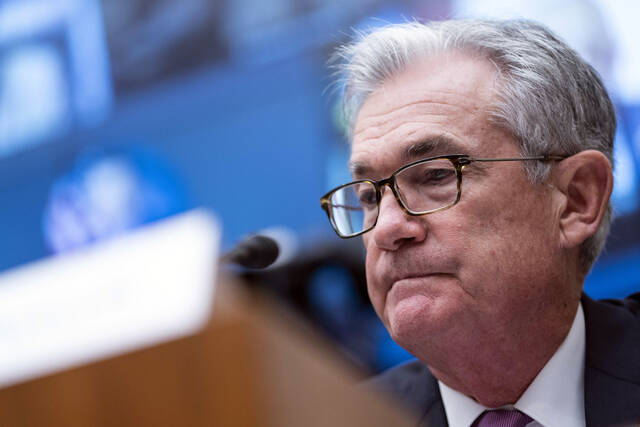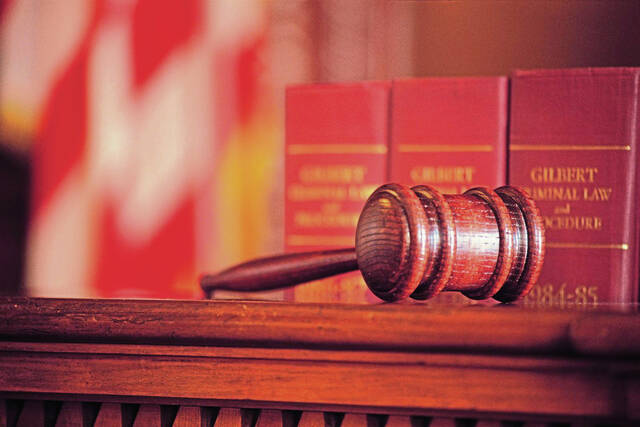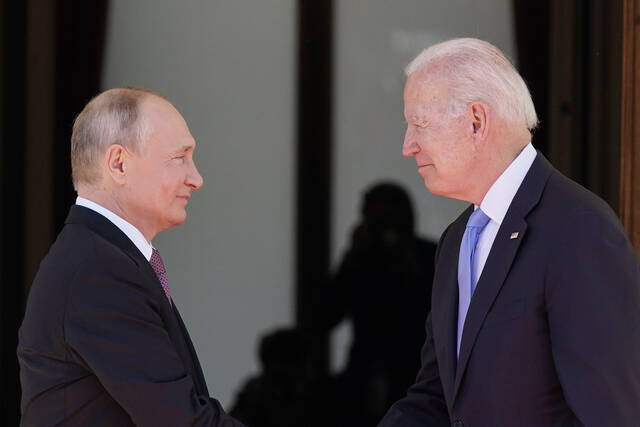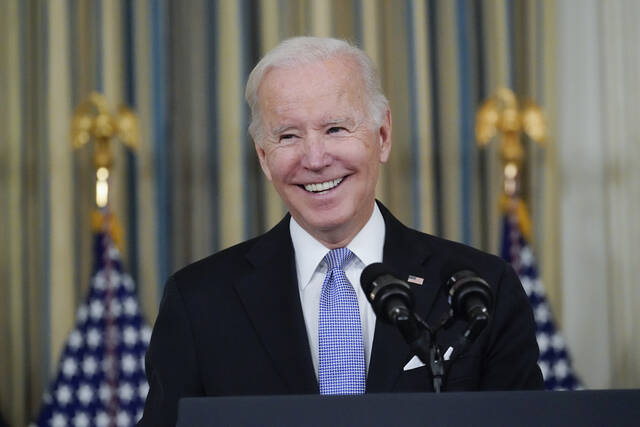As much as some Democrats’ tax-the-rich stunts offend the senses and expose hypocrisies, the actual policy details of the tax-and-spend plans emerging on Capitol Hill matter more. Pennsylvania families and taxpayers should be far more concerned that the proposal making its way through Congress would be an unprecedented expansion of government spending, amounting to massive new federal deficits at a time of worrying inflation. Is now really the right time to double down on tax-and-spend policies that have pervaded Washington, D.C. for years? The answer from most Pennsylvanians is a resounding “no.”
With the legislative sausage-making now underway, it’s likely Pennsylvanians would find the menu of specific tax hikes distasteful. Among them:
• Imposing new limits on the small business deduction;
• Increasing the basic capital gains tax rate from 20% to 25% (nearly 29% with new surtaxes);
• Hiking the corporate tax rate from 21 to 26.5%;
• Instituting a new tax on vaping products (which many use to quit smoking); and
• Creating heavier death tax burdens.
Supporters counter that many of these proposals are limited to high earners or big businesses, but as a practical matter, all Pennsylvanians would pay the price. Congress’s own scorekeeper, the Joint Committee on Taxation, estimates that the corporate tax hike would harm households with incomes of less than $100,000 through lower wages, higher prices and fewer jobs.
Further, they estimate that by 2027, the average taxpayer making $30,000 or more would see their taxes increase — a blatant violation of President Biden’s pledge to not raise taxes on middle-class Americans. And when “the rich” pay a higher tax on investments, the value on stocks drop, impacting millions of IRAs, 401(k)s, and college savings accounts.
According to Fabrizio Ward polling conducted this month, Pennsylvania voters oppose enactment of President Biden’s $3.5 trillion “Build Back Better” plan by a 60%-35% margin. The survey took place before major committees in the U.S. House of Representatives began drafting a bill to implement the President’s agenda but included polling on many of the proposed tax hikes that have made it into the bill.
Whatever benefits some Pennsylvanians might get from the bill could be outweighed by the negative impacts of these and other proposals.
Sitting ominously in that “other proposals” category are policies that could worsen inflation. The Biden Administration’s proposed targeted, punitive taxes on oil and gas producers could drive up energy prices. As we’ve seen in recent months, higher energy prices don’t just make it more difficult to fill up our gas tanks or pay our utility bills; they push up the cost of everyday products like food and clothing.
Yet Biden and Congress seem oblivious to this problem. They are considering measures that would repeal century-old provisions in the law which allow oil and gas producers to deduct the costs of their operations just like companies in other sectors of the economy.
On top of that, the House has included a “methane fee” (i.e., a tax) that targets the natural gas Pennsylvanians use to heat and electrify their homes.
The Fabrizio Ward poll flags this as a bad move. When asked if “raising taxes on natural gas or oil could affect energy costs for consumers and businesses, and risk increasing inflation even further,” a 69%-25% majority of Pennsylvanians agreed. These majorities held across all political leanings — self-identified Democrats still agreed by roughly 2 to 1, while Independents were at 3 to 1.
The results should be noteworthy but not terribly surprising. Commonwealth residents know how important affordable energy (especially cleaner-burning natural gas from Marcellus shale) is to their well-being. Pennsylvania is the second-largest natural gas-producing state. This abundance can save families hundreds of dollars a year in energy costs and, according to the Pennsylvania Public Utility Commission, has generated $1.7 billion in impact fees that went to local government services. The bottom line is that exorbitant, counterproductive tax rate increases would cost the state jobs and actually reduce other revenues.
Such strong poll numbers are also significant because the “key areas” of the Commonwealth surveyed include the Congressional districts of Democrats Matt Cartwright and Conor Lamb. Both lawmakers, considered to be moderates who can work with colleagues across the aisle, should pay heed to their constituents’ concerns.
A $3.5 trillion federal spending hike, backed by punitive taxes and more borrowing, could tip Pennsylvania — and the nation — from a fragile recovery back toward the drearier days of the pandemic recession.
Nathan Benefield is vice president and chief operating officer of the Commonwealth Foundation. Pete Sepp is president of the National Taxpayers Union.








